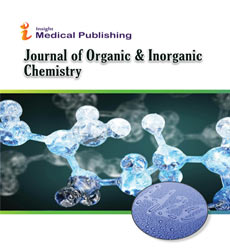N-halosuccinimides as mediators for comprehensive direct transformation of alcohols under mild reaction conditions
Njomza Ajvazi and Stojan Stavber
1Jožef Stefan Institute, Slovenia
2Alma Mater Europaea Campus College “REZONANCA” Pristina, Kosovo
Citation: Njomza Ajvazi, N-halosuccinimides as mediators for comprehensive direct transformation of alcohols under mild reaction conditions, Organic Chemistry Congress 2020, 3rd International Conference on Organic Chemistry, July 23, 2020, pp.06
Abstract
The development of protocols for the transformation of organic compounds following the principles of green chemistry is currently one of the main trends in organic synthesis. Since alcohols are versatile compounds, their direct transformation under green reaction conditions would be an important process to provide useful building blocks in organic synthesis. Because of their lower leaving group ability, hydroxyl moieties are rarely substituted under mild conditions and must often be activated before treatment with nucleophiles. Numerous related methodologies have been elaborated using a sub stoichiometric amount of Brønsted acids, metals ions, Lewis/Brønsted acid combination, or other promoters. However, the requirement of toxic or expensive reagents, environmentally undesirable solvents, a high concentration of the mediator, prolonged reaction time, or high temperature make such a method less attractive from the green chemical point of view. Thus, the development of efficient, selective, and environmentally benign catalytic methodologies for comprehensive direct transformation of various alcohols for new C-C and C-heteroatom bond formation remains an attractive research subject. A group of organic compounds bearing an active N-halogen bond: N-halosuccinimides (NXSs) (chloro, bromo and iodo), are an inexpensive, commercially available, easy handling, and metal-free reagents which are widely used in organic synthesis as oxidizing, hydroxyhalogenating or halogenating agents. NXSs have recently been attracting attention in sub stoichiometric amounts for various types of organic transformations. We now report the introduction of these compounds as non-metal, commercially available and environmentally friendly mediators as a convenient method for comprehensive direct transformation of various alcohols with various types of electron-rich organic molecules or reactive anionic species forming new C-C and C-heteroatom bonds under solvent-free reaction conditions (SFRC) or under high substrate concentration reaction conditions (HCRC).
Biography
Njomza Ajvazi received her BSc degree and completed her MSc degree in the field of Organic Chemistry with Biochemistry at the University of Pristina “Hasan Prishtina”, Kosovo, in 2009. Her Doctor of Science degree in study programme: Nanosciences and Nanotechnology was conferred by Jožef Stefan International Postgraduate School, Ljubljana, Slovenia, in 2016, under the supervision of Professor Dr Stojan Stavber. Currently, she is an Assistant Professor at the Alma Mater Europaea Campus “REZONANCA” and Teaching Assistant at the Faculty of Agriculture and Veterinary at the University of Pristina “Hasan Prishtina”, Kosovo. Her research interest is the development of new methodologies for comprehensive direct transformation of alcohols forming new C-C or C-heteroatom bonds under green reaction conditions.
Open Access Journals
- Aquaculture & Veterinary Science
- Chemistry & Chemical Sciences
- Clinical Sciences
- Engineering
- General Science
- Genetics & Molecular Biology
- Health Care & Nursing
- Immunology & Microbiology
- Materials Science
- Mathematics & Physics
- Medical Sciences
- Neurology & Psychiatry
- Oncology & Cancer Science
- Pharmaceutical Sciences
